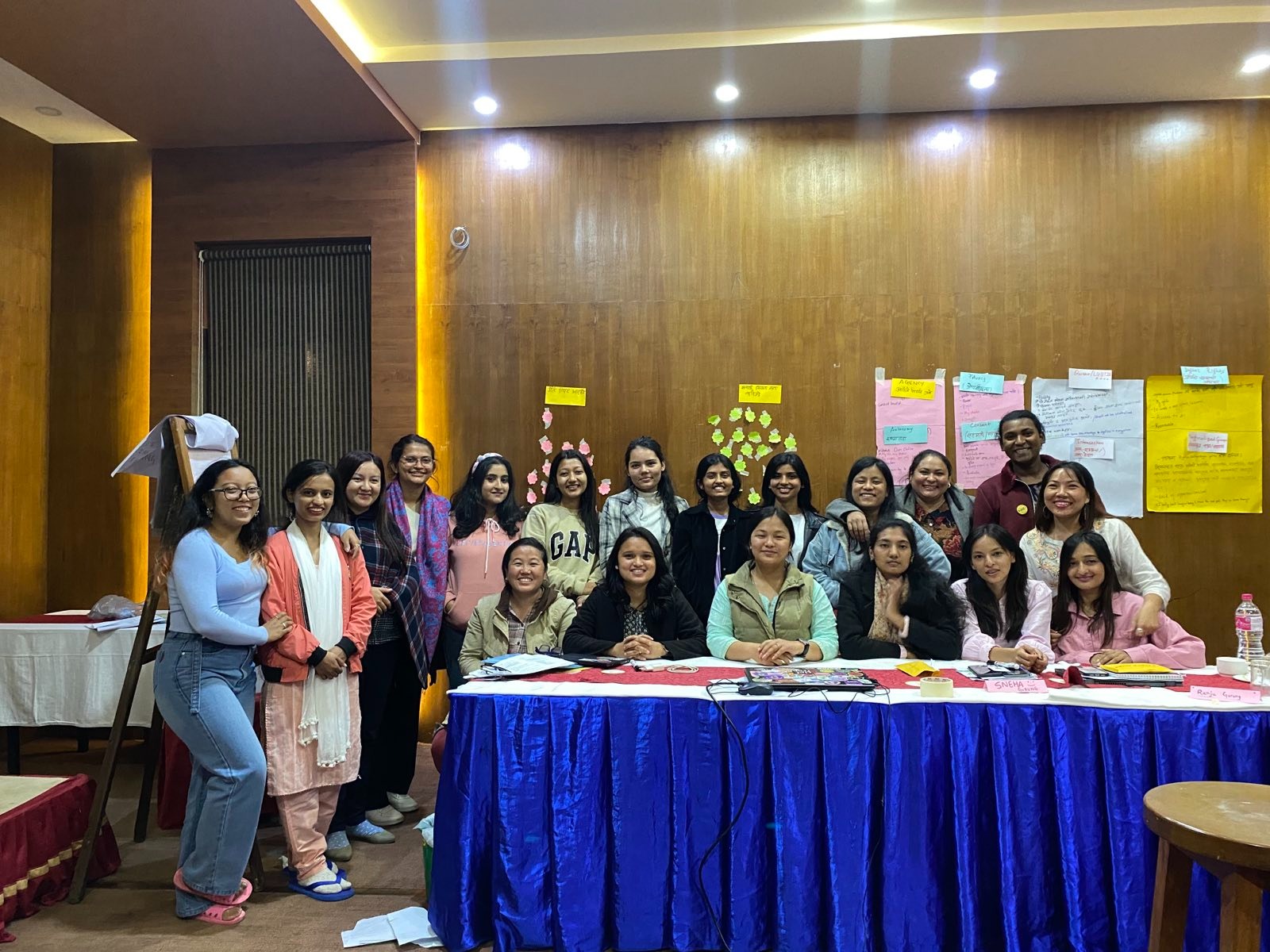The Feminist Tech Exchange workshop held by Body and Data in Gandaki Province brought together a diverse group of participants from Gandaki Province for the Feminist Tech Exchange (FTX); Digital Security Workshop. Here, we are presenting the digital rights concerns in the local context of Gandaki discussed by the participants. The discussions focused on four major themes: access to technology and the internet, freedom of expression and the freedom to associate and assemble online, data privacy and the politics surrounding it, and surveillance on the internet and technology. People further shared their experiences around the themes.
Access
Access to the internet and technology is affected greatly by state and policy. According to the participants, the state is engaging in activities that actively remove access to the internet from people, namely banning and filtering content instead of letting consumers filter them, prosecuting people for expressing opinions on politicians, and so on. The state’s failure to provide internet access in remote areas also results in a lack of opportunities to participate in internet spaces for people from those areas.
Aside from the government, another obstacle to accessing the internet was perpetuated by the negligence of the platforms themselves. For example; from the point of view of people with disability, the use of ‘Preeti’ font, lack of captioning, unnecessary ads, and so on create obstacles to accessing internet content. Lack of language accessibility ignores language diversity as a large chunk of the population does not understand Nepali or English. Therefore, they argued that platforms should include local languages to ensure everyone’s presence and use this contentment and platforms in the internet space.
Likewise, the participants talked about from the society that prevented access to the internet, especially for women and young girls. The unacceptance of diverse gender identities and expressions also contributes to the lack of queer presence online.
One of the participants shared that a queer person wasn’t allowed to access the internet by their family members as a response to their identity, —calling them “shameful”. Another participant recounted how their landlord would cut off access to their internet as they pleased, even though they had paid money for the internet service.
Freedom of expression and freedom of association and assembly
Freedom of expression and freedom of association and assembly are issues of concern for the participants. Whenever someone expresses themselves on any platform, they’re verbally, mentally, and emotionally abused. Freedom of expression, particularly about politicians is penalized, recounting the arrest of public figures for talking about politicians.
Abuse and violence have multiple levels of impact on people. They need not face the violence directly. The participants shared that even if they didn’t have to face abuse, they’d still have to contend with social judgment, as well as legal repercussions. But the extent of social consequences of freedom of expression was the most talked about and people shared that they are not allowed to talk about sexuality, sexual and reproductive health and anything sexual due to judgment from society. One of the participants shared an anecdote about how one of their friends was constantly scorned and belittled for working with sexual and reproductive health rights. They also pointed out that they had to face misogynistic comments while talking about sexual health. People are threatened while trying to speak out about important social issues and their freedom of expression is also threatened as a result. Popular accounts were mass reported and banned for no reason by trolls.
Data privacy and data politics
Data privacy and data politics related discussion is very diverse and multiple points of view were expressed by the participants, focusing on different aspects of it. The discussion also shed light on the importance of consent, and the trend of platforms and states taking their data without appropriate consent from people. A participant from the group shared a personal story about how the social media they used for political activism was used as grounds for their arrest. They also recounted how the police would frequently telephone and question them about upcoming political events that they had organized, despite having only shared the details through the internet. Aside from their own experiences, the participants also recalled a video shown in the workshop which pointed out that political parties were using their data for political messaging, and they agreed that they saw as this a breach of data privacy for political means.
Surveillance
Surveillance along with privacy was uncovered as another issue of concern. One of the bigger issues with surveillance, aside from state surveillance through CCTV cameras, was people clicking pictures of others without their consent and posting those pictures. Further, it highlighted how day-to-day lives were under surveillance despite little evidence or recognition of the surveillance happening and how it might be affecting us. People from the margins of social boundaries were kept under surveillance, with intersections with other axes of oppression like casteism. Recounting the personal stories of the participants, the surveillance from the workplace was the most common experience, achieved by controlling what they can or cannot post on social media, and so on. People also noted that they could not be open about things like their sexuality because their privacy was not considered, and they had to hide their identity from their co-workers. Others opined that LGBTQ+, social activists, political parties, and strongly opinionated people were the greatest victims of surveillance. It was also noted that teenagers were also spied on using the argument that they were vulnerable. The same protectionist lens was also applied to women, by both family and society, arguing that they weren’t safe on the internet and needed to be “protected”.

